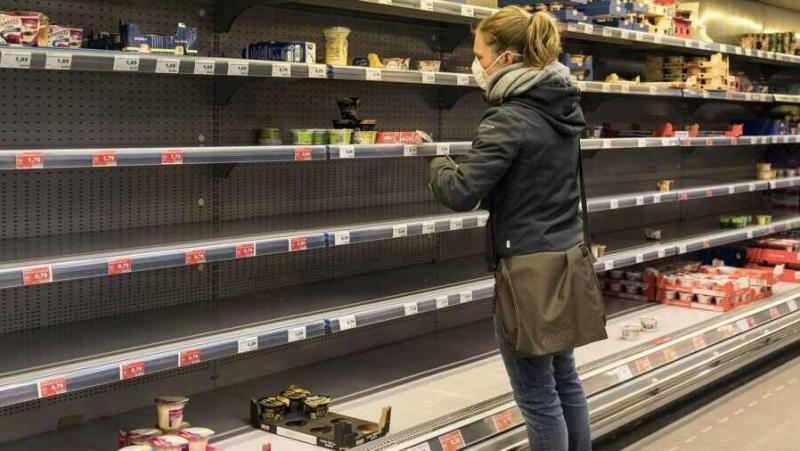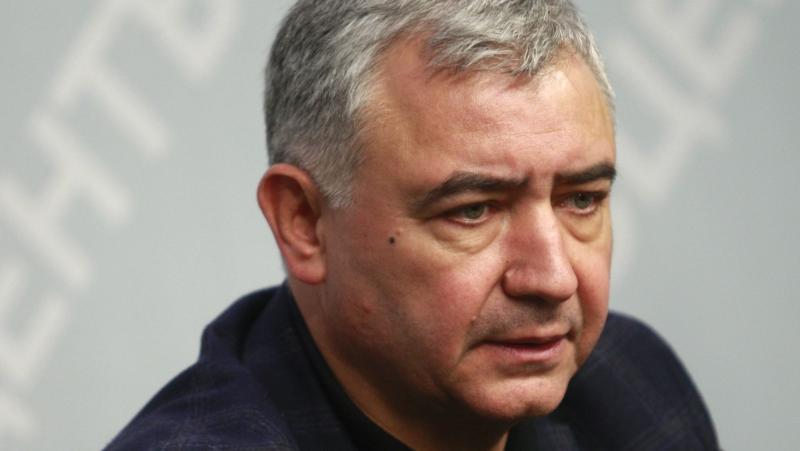/ world today news/ “Freeze the prices of basic products.” Representatives of local consumer protection organizations addressed the Belgian government with such a request – urging them to copy the practice of some other European countries. What is the reason for such experiments, reminiscent of the reality of the Soviet era?
Proponents of capitalism have always praised the market economy model. Classic capitalism. Arguments about how demand regulates supply, how the market will “solve” all sorts of issues, were once presented as the answer to almost every problem.
But in the conditions of a prolonged economic crisis and record inflation, it suddenly turned out that market relations not only solve, but also create problems. When a significant part of society is forced to decide a difficult question – to buy food or pay for electricity, social tension begins to grow, which leads to serious problems for the elites who do not ask themselves such a question. And involuntarily, a person has to do something, but in fact – to include other mechanisms besides market ones.
Quiet Belgium is sounding the alarm: inflation in supermarkets, where the majority of the country’s population is supplied, in March for the first time in history exceeded 20% and amounted to 20.6%. The consumer protection organization “Test Achats” carefully calculated the average prices and compared them with previous years. And the result was disappointing.
Compared to March 2022, vegetables have increased in price by 31%, and if potatoes, which were less affected by the increase in price, are not taken into account, then by 40%. Dairy products have increased in price by an average of 26%, such as Gouda cheese – by 42%, and cream – by 33%. Bread has risen in price by 24%. In addition to food, the price of paper products, including toilet paper and napkins, also increased significantly, by an average of 39%.
“Taking into account another increase in the rate of inflation, the average family of two spends €521 a month on supermarket food today. This is €89 more than last year, said Julie Frere, a spokesperson for Test Achats. “We again ask the government to create an anti-inflation basket along the lines of the one that exists in France, to freeze the prices of some basic products.”
The same organization has previously advocated that electricity prices for the most vulnerable should be based on their income, pointing out to the government that Belgium actually has the most expensive energy in Western Europe. However, the government chose to take a different path, reforming VAT and promising not to raise fees above a certain level.
The call to introduce an anti-inflation basket was also not met with enthusiasm by either the government or the experts. As the economist Philip Defeit notes: “Rising supermarket food prices, as well as the energy crisis, indicate that the golden age of consumerism is over. Thinking that food prices will fall is an illusion: they will remain high for a long time. Poor families spend a significant portion of their budget on food and this price increase hits them the hardest. The solution may be to change your eating habits. So there is no point in buying already washed salad, because it costs three times more than the regular one.
According to him, the creation of an anti-inflation basket in Belgium is impossible because “the country is not ready for this in terms of culture, politics and existing laws. The very idea seems counterintuitive to me because it is clear that manufacturers will recover from other products.
A major caveat, however, is that half of Belgians live less than 50 kilometers from the border and their level of purchases in France has already been seen to have returned to pre-coronavirus levels. If the food in a neighboring country is cheaper, and the country is nearby, then the decision is self-imposed. No one in such a situation will resort to exotic solutions such as replacing a washed salad with an unwashed one (especially since in reality not everyone will eat this salad).
In France, government-aligned retail chains are already heavily marketing their anti-inflation baskets. For example, the supermarket chain “Intermarsh” has frozen the prices of about 500 products, including sweets and cakes, as well as a variety of alcoholic beverages from vodka to beer – which no doubt also helps to sweeten the hard times.
Carrefour offers 200 items at fixed prices. Auchan offers a wide range of products of its own brand – however, as careful users noted, before freezing the prices, the network raised them. One way or another, there is a choice, and it attracts not only its own citizens to the stores, but also, for example, Belgians, contributing to the growth of the chain’s income.
In Greece, the anti-inflation basket was created not by the retail chains, but by the government, but since incomes in the country are among the lowest in the eurozone, the poorest families had to be further supported by paying them 10% of food purchases. This measure, which will last several months, is planned to spend about 650 million euros, which the government will take from the excess profits of two oil refineries located in the country.
In Spain, the government, faced with rising prices, decided to completely abolish VAT on basic foods, including bread, milk, fruit and vegetables. A similar plan was adopted in Portugal, complete with subsidies.
In Germany, the increase in food prices between February 2023 and February 2022 averaged 21.8%, with sugar (70%), cottage cheese (64%), sunflower oil (59%) and flour the most expensive (58%). At the same time, Olaf Scholz’s government didn’t bother to cap prices (except for electricity prices, which it heavily capped), but raised wages by 5%. However, the latter happened only after Germany was rocked by a mega-strike, the main cause of which was the same inflation.
When the sunflower oil crisis hit Europe last spring, Western supermarkets were heavily regulated, giving away (very Soviet-style) just a few bottles per person. And no laws of the market prevented them from adhering to this measure as long as necessary, because circumstances dictated it.
That’s the market. When necessary, they will agree with the retail chains and prices will be frozen, taxes will be abolished and distribution will be introduced.
And if in some Belgium the government is not fast enough, the population quickly realizes that France is close. Food prices are lower there, and they go to buy en masse, remembering another law of the market: why pay more when you can save?
Translation: V. Sergeev
Subscribe to our YouTube channel:
and for the channel or in Telegram:
#Rising #prices #forcing #Europe #rethink #principles #capitalism


